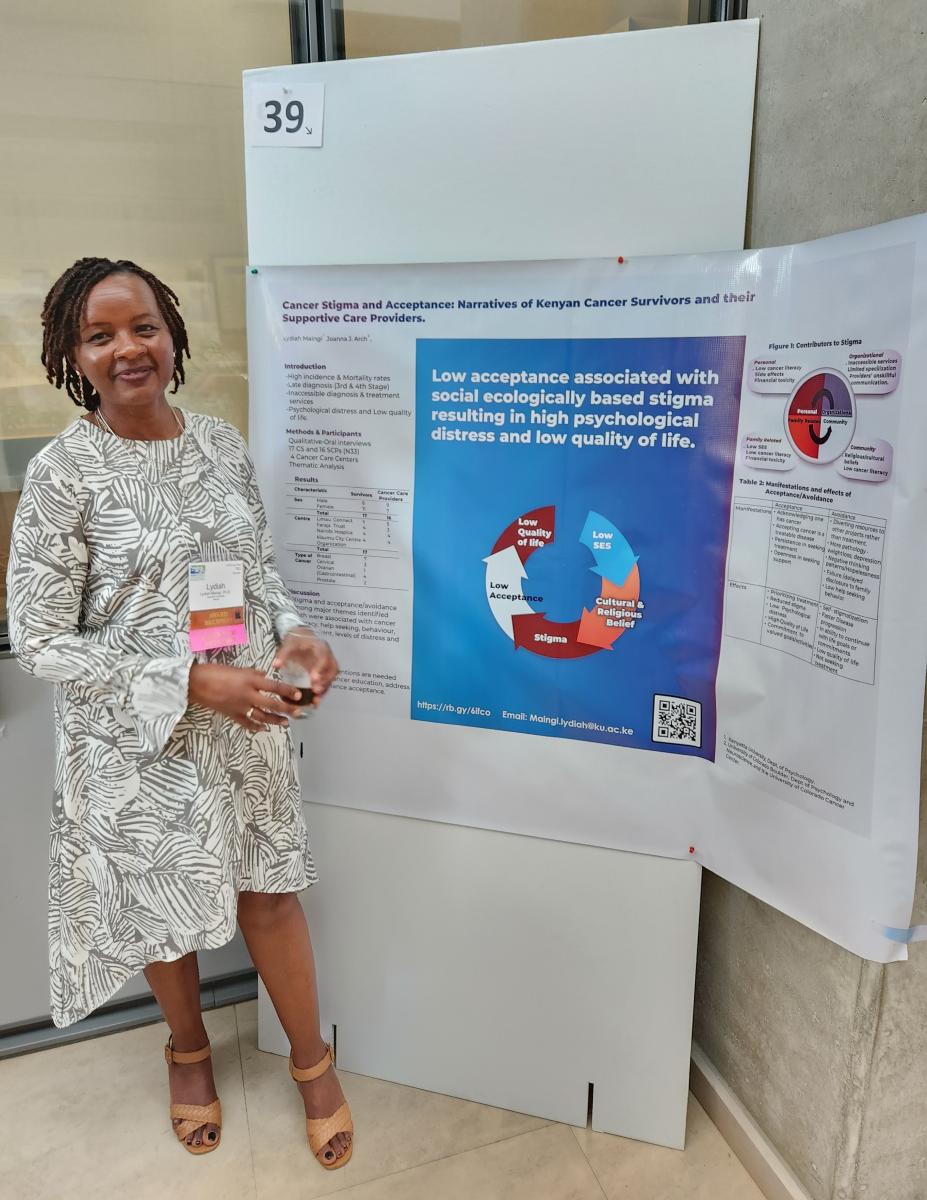Lydiah Maingi, Kenya
Could you please tell us a little about you and your background?.jpg)
I am a counselling Psychologist and Lecturer at the department of Psychology in Kenyatta University, Nairobi, Kenya. There is limited mention, use and training of CBS concepts/principles in Kenya. and hence I had never interacted with it in my training or therapy work.
How did you become interested in CBS?
I learnt about ACT in the process of reviewing literature on appropriate interventions for cancer survivors. I contacted Prof. Steve Hayes who connected me with Joanna Arch, a mentor I have to date. I participated in ACT training via ACT immersion and continue to further my knowledge and skills through the ACBS resources. I also learnt about ACBS community and joined the organisation in 2020 and continue to benefit from the resources available via the website.
Could you tell us about your research and application interests?
My research interests are in Mental health, specifically on Compassion Fatigue among health care providers, Depression and Anxiety and on Psychosocial support for Cancer survivors. I desire to support cancer patients to accept and improve their quality of life despite their cancer experiences in a country where treatment accessibility is low. I successfully applied for the ACBS Development Research Award in 2021 courtesy and together with Joanna Arch to conduct a study on "Gaps in Supportive Care for Cancer Patients in Kenya: Recommendations for Acceptance and Commitment Therapy Intervention". Later in the year (2022) I applied and was granted the ACBS Developing Nations Award to attend the ACBS 2023 conference where I would present the preliminary findings of the ACBS funded project. Currently, I am developing an ACT intervention to address the gaps faced by cancer survivors in Kenya.
Could you tell us about your experience at the World Conference this year?
The experience at the ACBS world conference at Nicosia, Cyprus is very memorable. The workshops came in handy for me and helped to grasp the ACT metaphors and to experience the exercises personally and practically. I particularly learnt how to utilise ACT from where I am through the Pre-conference workshop by David Gillanders "Starting where you are at: How to integrate ACT and other Contextual Behavioural Principles into your work". The fact that I could follow more conference sessions later after the conference made it easier for me to select the sessions that were more practical during the physical conference at Nicosia. This gave me the opportunity to maximise more conference presentations than would have been possible in a few days of physical presence. I commend the conference organisers for this.
Was there anything that stood out to you about the CBS community?
The CBS community comprises of very friendly and down to earth members who made my first time experience at the ACBS conference easy and memorable. The enthusiasm, love and utilisation of the CBS concepts in research and client work as illustrated in most presentations demonstrated not only a belief in but also the usability and effectiveness of CBS and ACT specifically. This was very inspiring for me.
What did you take back from your experience that has been helpful to you?
I have been able to integrate ACT in my client work and also in my teaching. The books that I bought at the conference and other resources as well as the exposure I got has continued to motivate me to utilise the CBS principles. I have developed a proposal for an ACT intervention with Cancer Survivors and hope to get funding to roll it out. I look forward to having more of my colleagues engage in ACBS. I also hope to soon publish my recent findings in a journal which will enhance dissemination of ACT in Kenya, a Low and Middle Income Country (LMIC).
Do you have anything else that you would like to share with the community?
There is need to disseminate the CBS principles and the existence of ACBS in Kenya. While I hope to make that happen, any other efforts towards that will be highly appreciated.
I am very grateful for the Developing Nations Award that made it possible for me to attend the conference that I would have otherwise not been able to. To the committee and the conference organisers, thank you all for a well planned event.

